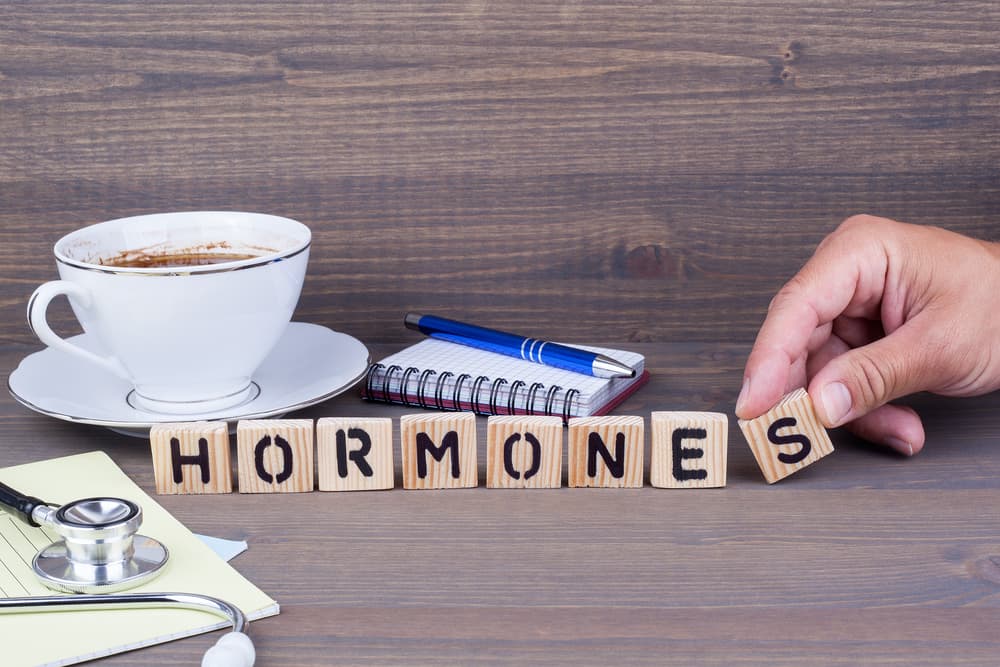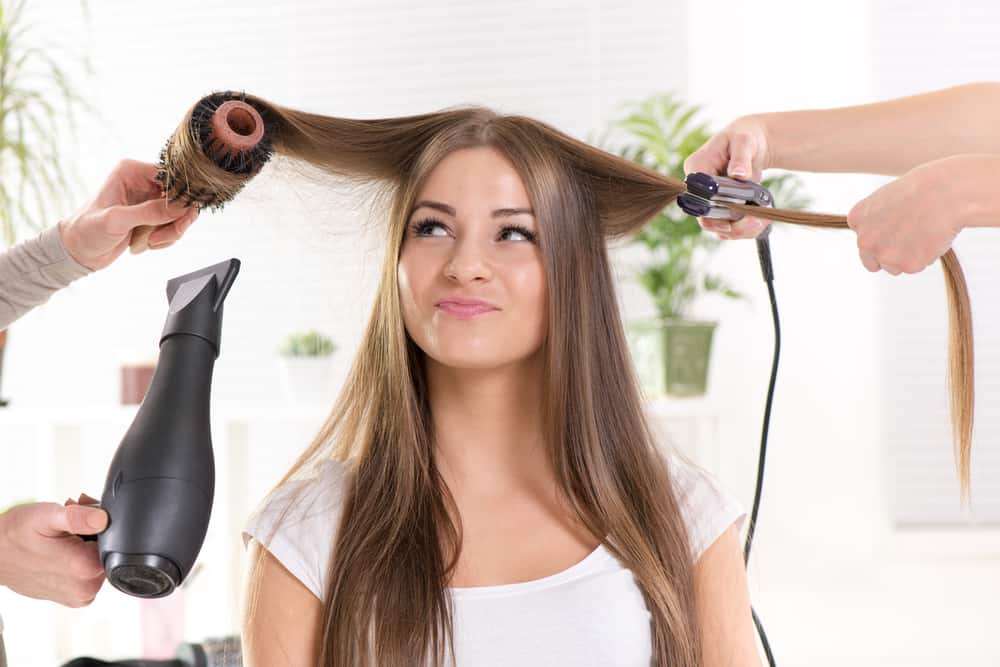Last Updated on
Hair is often just looked like a beautiful assess, a personality extension and/or a cultural sign of identification. But did you know hair can also be an indicator of your health status? If you want to know which are the signs your hair is trying to bring to your attention, keep reading this post and find out what is your hair trying to tell you in about your health.
Why should you pay attention to your hair?
So you might be wondering how can your straight, wavy or curly mane be a trustworthy health indicator. Let’s not think about hair as a beauty assess but as a product. Hair is produced by the body and, for this to happen, it requires to have a certain amount of resources. When these resources are not obtained in the right quantities, hair cannot be produced normally. Hair is made from a hard protein, keratin, and it is anchored to the skin by hair bulbs and feeds from the nutrients that blood vessels deliver to this last ones. When our body suffers any changes, the hair follicles are affected fast and our hair starts to become brittle and dry, to fall out and show other symptoms.
But, how to recognize what our hair is trying to tell us? We are very used to manipulate our hair in various ways and, nowadays, is hard to maintain hair in its natural shape: we iron it, we use hot rollers to curl it, we dye it, and all of these styling procedures make it harder for us to recognize any message our hair tries to send us. To avoid missing any sign, you should pay attention to anything that is out of the ordinary. If your hair starts having a different shape, texture or it falls out more than normal, and all of this changes are accompanied with other body abnormalities, then you should consider visiting a doctor to get further insight about your health.
Things your hair is trying to tell you
Now, let’s check out this 6 things your hair is trying to tell and how does it do it.
1. You really need to take a break from life

Stress provokes quite a few alterations on hair. People usually shed from 50 to 250 hair strands but, if you notice you are loosing way more than that, then it might be because you are going through a very stressful stage in your life. This type of phenomenon is called telogen effluvium. It is spotted in people who have survived a traumatic event or who has a really stressful lifestyle. If you recognize this is something you are going through, the best thing you can do is take a break from whatever is going on in your life and work on yourself. Remember your hair is only a cause of something more going on inside you. If stress affects your hair in such a way, how could it be affecting the rest of you?
2. Your diet needs to improve

If your hair starts turning grey prematurely and none of your relatives show the same pattern, then you might be having a B12 vitamin deficiency. When this greying event occurs from one day to the other and you also experiment hair loss, then it might be because of alopecia areata: a disease where you lose patches of hair and, by losing the strands that are colored in your original hair color, your grey hair appears more notorious.
If you suffer from an increase of hair shedding and you have also altered your diet, then you could be suffering from anemia or even from an eating disorder. When our body doesn’t have enough resources to support more vital functions, it takes them from the nonvital functions: that’s why hair start falling out when a person is not eating enough or well enough. You need protein, iron, zinc, and other vitamins and minerals to have healthy hair, nails, skin and, most importantly, organs and body functions.
3. You should check your hormones

Hair is directly affected by hormone production. If an imbalance occurs, you can bet your hair is going to let you know. The thyroid controls the speed of metabolism, which basically means that it is the regulator of energy reserves usage. Hypo and hyper thyroidism produce hair loss. If you are eating well, you have healthy habits and your stress levels are under control, then you should check out the state of your thyroid. You have hypothyroidism if you experience weight gain and you have hyperthyroidism if you experience weight loss. But, to determine if you have a thyroid disease, you need more evidence than weight fluctuation. Other symptoms are a swollen front neck and brain fog.
Another hormone imbalance your hair could be trying to tell you about is polycystic ovaries. This reproductive endocrine disease can be thinning your hair. Hair thinning is not enough to determine if you have polycystic ovaries, other signs of this disease are acne, an increase in body hair, irregular periods and patches of dark skin in certain areas (called acanthosis nigricans). If you identify with the symptoms described before, then you should visit your gynecologist and get an exam to get confirmation of the presence of polycystic ovaries.
4. You might be closer to menopause than you think

Menopause provokes a hormone imbalance and, as a result, autoimmune diseases appear, such as alopecia areata. In this stage of life, the body stops producing as much estrogen and progesterone as before and the amount of androgens in the body becomes higher, which causes hair loss. Visiting an endocrinologist could be useful for you to be able to cope with all the other changes your body goes through during menopause.
5. You have seborrheic dermatitis
You can recognize this is the condition your scalp is suffering from if you have yellow and greasy flakes and experience itchiness. This skin issue is caused due to a yeast infection or an abnormal response of the immune system. To solve this problem, your doctor will recommend you to use specialized hair cleaning products, antifungal creams or pills, or corticosteroids lotions.
6. Your styling habits are too agressive

Certain products you are using might be damaging your hair. Although you could think this is not a big deal for your health, your scalp skin is very sensitive and can develop an allergy, feel like burning, feel itchy and even get so damaged that hair follicles could stop functioning well. If you are a fan of wigs, keep in mind they put a lot of stress on your scalp and can atrophy your hair follicles and make them weak. If you tend to relax your hair, be aware of the chemicals you are using or you could burn your skin. As long as you use the right products to style your hair and protect your scalp from aggressive treatments, you will not experience any bad consequence in the future.
Listen carefully to what your hair is trying to tell you. Nails and skin are also good indicators to spot any body imbalance and treat a disease before it gets too serious.



Leave a Reply
You must be logged in to post a comment.